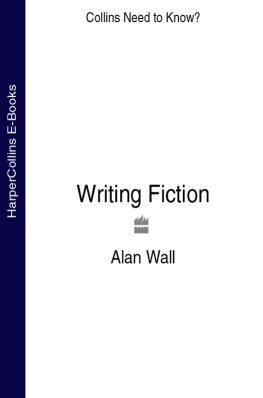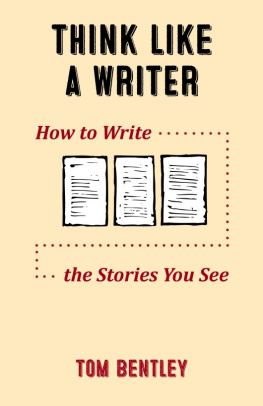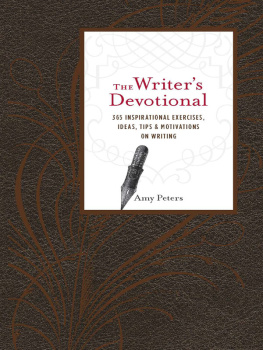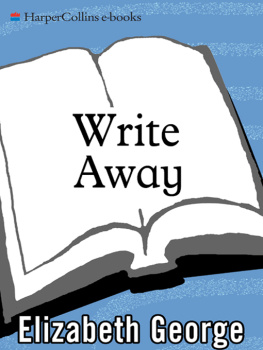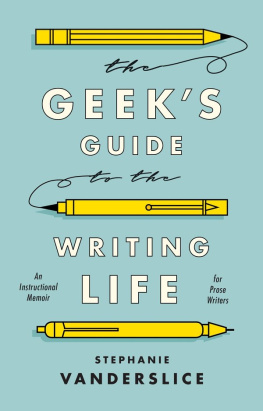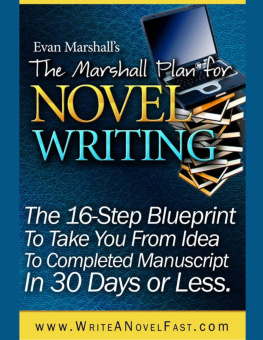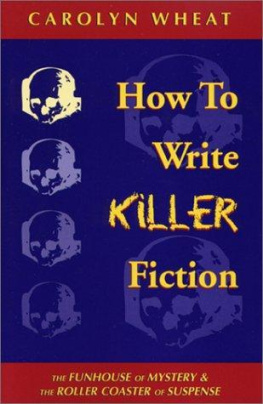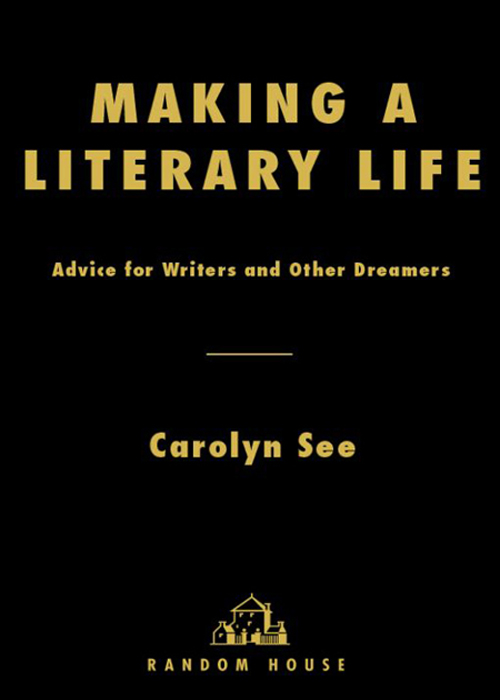
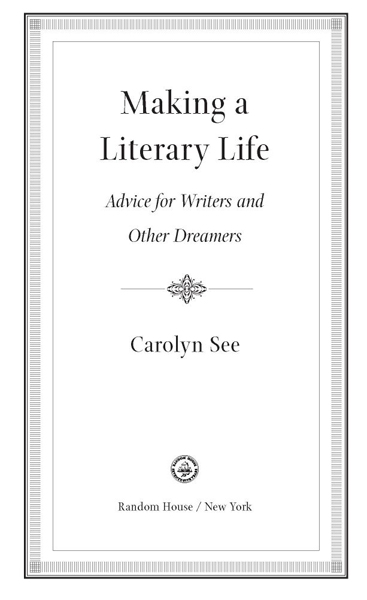
Table of Contents
TO CLARA
Who saved me from the shipwrecks
Introduction
Making a Literary Life is not necessarily for the already successful and sophisticated. Its for students just coming to this discipline, older people who wanted to write in their youth and never got around to it, folks who live in parts of the country where the idea of writing is about as strange as crossbreeding a tomato and a trout.
This book is for the timid, forlorn, and clueless. It will tell you everything I know about how you can learn to write in your own voice, how, with some luck and work and play, you can achieve enough publication, reputation, and recognition to make you happy. More importantor as important, I believe it will tell you everything I know about not butting your head futilely against what we might call everyday life. This is about making your own literary life, wherever you are, wherever you live, whoever your family and friends may be.
Carolyn cares more about the writing life than she does about writing.
Carolyn hasnt succeeded in breaking the boundaries of the pre-Joycean novel.
These two statements were made at one of those faculty promotion meetings where they make it an ethical point to pass on every mean thing anybody ever says about you without saying who said it. (It doesnt matter; I was already a full professor. And they were nice people, doing their best.)
They were partly right. Theres never been a morning in my life when I catapulted out of bed and said, Okay! This is it! Stand back, pre-Joycean novel! Todays the day those boundaries come a-tumblin down! Its true that I love to write, second only to how much I love my children, that I entertain the thought that if Im good enough, what I write might change the world for the better. I love the life too; I loved overhearing the president of the Writers Guild asking the late Max Shulman, shyly, like a girl on a first date, When do you write? In the morning, if I can, he answered. I love standing in line at book signings and having the sense, if theres no one behind me in the line, to blab on to the writer for twenty minutes so that the writer wont die. I love big literary fund-raisers and drinking bad wine from a plastic glass or phoning my daughters to groan about publishingbecause my daughters are writers, too.
But mostly, of course, I love sitting on the couch in my sweats, turning on Van Morrison just below audio levelI can hear him, but not really, inviting me to meet him down by the pylons or to listen to the lion or to not have a guru or a preacherand then writing my thousand words: my thousand words, which have nothing to do with breaking the boundaries of the pre-Joycean novel and everything to do with what it means to be living right now, right here, in my particular place in America. Because I believe, with a patriotic sincerity that would make a Legionnaire blush, that American literature is owned by everybody in America and that world lit is owned by everyone in the world and that we all get to have a say in it, not just a comparatively few men and women in the Northeast, no matter how decent and talented they may be.
This book is divided into three parts, and is intended to cover the writing process from the first moment you decide, or dream, that you want to write, on through to the third month after publication of your first novel, when you get to think with a lot of serious tremblingabout whether or not youd want to do it again, really devote your life to this writing, this life, your literature.
Part One advises you how to gear up, discreetly, for what it is you want to do. It exhorts you not to talk about how you want to be a writer, because that bores people to death. On the other hand, it asks you to look around for your own material: not Stephen Kings or Paul Austers but your own. Your treasure. Andwhy not pretend to be a writer: What would it be like if you could really do it? It reminds you to begin to hang out with people who wouldnt hate it if you really did try your hand at writing. And because the whole project sounds so iffy, even as I write this, it gives you some tips on practicing white magic to get what you want, or at least not sabotaging yourself in pathetic ways. It tells you (and how proud I am of this chapter!) how to deal with rejection as a process, to see it as a kind of courtship that keeps your mind engaged and your heart from being broken. It gives you some useful tips on how to behave when your first article or short story is publishedso that you wont embarrass your family and friends. Because nobody and no one wants a writer-jerk in the family. Most important, Part One starts you on a discipline of a thousand words a day, five days a week, and one charming note written to someone in the literary world who makes your hands sweatfive days a week, for the rest of your life.
Part One, then, is a combination of writing and life strategies, a beginning. And it ends when you publish your first work, whether its an article on dementia in whales (or Wales) or an obscure piece in a literary magazine or your grandmas recipe for beef Stroganoff.
Part Two has to do with writingbut not writing according to somebody elses rules! Nothing to do with Melville or the newly fashionable slave narratives or Hemingway or Fitzgerald (except to show, maybe, how they use certain devices). I wont harangue you about deconstruction or controlling images. After suffering through graduate school and reading more than my share of critical essays, I can only offer up Part Two as a checklist of things you may or may not want to think about in your work: character, of course; plotI believe Ive come up with something new about plot; point of viewIm a bit fanatical about this. A dentist I knew once impetuously had sex with one of his patients on the floor of his waiting room, then reared up on his elbows and said, You know, you really need to floss more. I thinkI knowthat point of view is the literary equivalent of flossing; if youve got flossing down pat, your teeth will live happily on into eternity with your shining bones. I talk about geography, time, and spacebecause one of my own personal curses has been getting my characters into the car and out of the carand a few other things. Its just a checklist, not an instruction book. The last thing in the world I want is to teach you how to write. You already know how to write, even if you dont know that you know. And I include a useful chapter on rewriting.
Youll notice that I ask you again to write one charming note a day to a writer, editor, or agent without asking afavormerely to express admiration and, when appropriate, love. These are paper airplanes of affection. They are the glue of human sweetness in literary society. What our mothers told us (if we were well brought up) is true: Manners and civility count for everything. Even if were writing in a gutter, we can pull ourselves out long enough to write some charming notes (to take us from this world, where were unhappy, to that other world, where we want to be).
Part Three begins at about the time you publish your first book, which is not as hard as it seems (the second one is the real trial), and takes a look at the fact that a real literary life may indeed be possible for you.
Its just another part of our demented fantasy that once we write the book, we are done with it; we can sit and think for a while and then go on to write another one. In reality, publication demands an almost Janus-faced split in your personality three months before and three months after your publication date. You hire a public-relations person or become one; you plan more parties than a cruise director. You realize (sometimes bitterly, sometimes philosophically) that your little book is only one of twenty or thirty that are being released by your publishing house that season and that
Next page

